In America today, China seems to be constantly in the headlines. From concerns over TikTok to conflicts in Taiwan, China’s rise to a global leader has shaken the West. Yet, many of us know surprisingly little about China or its vast, rich, and varied history. That’s where these books of Chinese history, written with Western readers in mind, come in. From the first emperor of China more than two thousand years ago to the Cultural Revolution under Mao Zedong to China’s modern position as a global economic powerhouse, these books provide a perfect introduction for Western readers to a variety of aspects of Chinese history and culture.
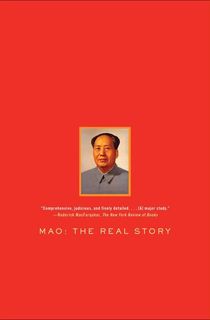
Mao: The Real Story
Few figures in modern history are as divisive as Mao Zedong, the so-called “Great Helmsman” who founded the People’s Republic of China and led it until his death. These contradictions are laid bare in this “comprehensive, judicious, and finely detailed” (New York Review of Books) biography, which draws on Russian and Chinese documents and unearths new material to create “one of the most important China books of recent years and a page-turner, too” (Library Journal).
Detailing everything from Mao’s achievements and crimes to his personal life and his poetry, this far-reaching biography touches on virtually every aspect of the life of one of the most significant and troubling figures in modern history.
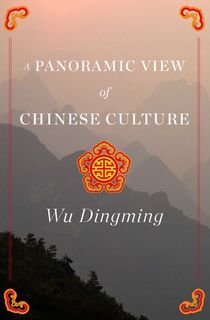
A Panoramic View of Chinese Culture
China is a country with centuries of history and culture, and from the outside looking in, it can be a daunting task to try to make sense of it all. Enter this expansive yet light overview, written for an English-speaking audience and offering simplified translations of certain key words and concepts.
From history and philosophy to sports and food, you’ll find a little of everything that gives China its distinct national flair in this comprehensive yet approachable book designed as an entry point into a vast, intricate, and distinctive culture that is becoming more pronounced on the world stage with each passing year.
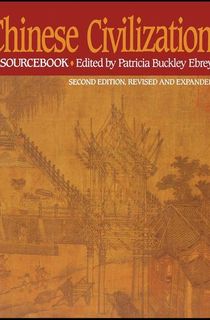
Chinese Civilization
A Professor Emeritus of the Department of History at the University of Washington, Patricia Buckley Ebrey has compiled one of the most indispensable supplementary texts on Chinese history around. Taught in college courses throughout the world, Chinese Civilization provides direct access to primary sources including letters, personal documents, social records, laws, and more from across China’s long and storied history, giving students and casual readers alike a view of what life was like in China from its earliest days to the present via first-hand sources that are often overlooked.
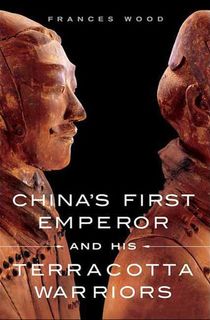
China's First Emperor and His Terracotta Warriors
Around 221 BCE, Qin Shi Huang declared himself “Shi Huangdi,” the first emperor of China. In this “readable introduction to a ruler who has been hailed both as his country’s founding father and vilified as a ruthless tyrant” (Sunday Times), Frances Wood, the head of the Chinese department at the British Library, combines thorough historical research with “poems, recipes and other quirky details” that “provide a vivid evocation of life in this period” (Waterstones’ Books Quarterly).
The result? “Essential reading and a colorful insight into a world in the making,” according to The Good Book Guide.
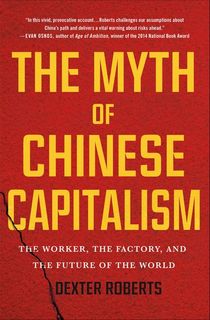
The Myth of Chinese Capitalism
Today, few countries have a greater impact on the world economy than China. Dexter Roberts, former China bureau chief for Bloomberg Businessweek, was stationed in Beijing for more than two decades, reporting on business and economic matters and building the insights that would power this book.
The Myth of Chinese Capitalism follows one family’s journey in a changing China while also showcasing how the nation’s policies affect both its own people and its place on the world stage. With “tenacious reporting that seeks to expose the murky underside of the Chinese miracle” (Financial Times), Roberts charts a path from the China of before to the China that is now, and offers a warning for the future of a world that is increasingly reliant on China’s economic fortunes.
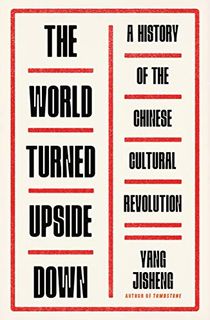
The World Turned Upside Down: A History of the Chinese Cultural Revolution
China’s Cultural Revolution, which took place between 1966 and 1976, is one of the most seismic changes in modern history, yet also one of the most misunderstood. In this “exhaustive and sometimes horrifying account” (Publishers Weekly), Chinese historian Yang Jisheng, author of Tombstone, “brings his reputation as one of China’s most daring historical writers to another open wound in modern Chinese history” (Financial Times).
The result is a “potent and sprawling history of the Cultural Revolution,” one of the first by a scholar within China, detailing “a little-understood and catastrophic decade in modern Chinese history” (Kirkus Reviews).
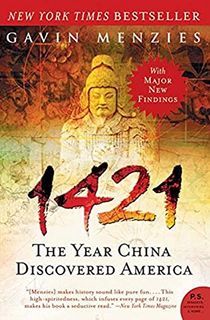
1421: The Year China Discovered America
In 1421, a massive fleet of enormous ships left port in China to sail across the sea. By the time they returned, the emperor had fallen, and the accomplishments of the ships were lost to decades of political turmoil that followed. However, in this controversial book, Gavin Menzies, a former submarine commander in Britain’s Royal Navy, claims that he has found evidence that the fleets not only circumnavigated the globe, but “discovered” America decades before Christopher Columbus was even born.
“Sure to cause a stir among historians, this questionable tale of adventure on the high seas will be hotly debated in academic circles” (Booklist), but whatever you think of the theories presented here, the author’s “enthusiasm is infectious” (Christian Science Monitor).
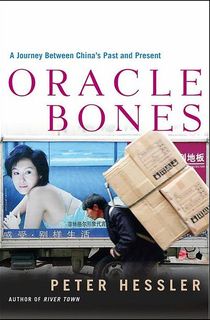
Oracle Bones
A finalist for the National Book Award, this “remarkable travelogue” (Kirkus Reviews) follows the lives of ordinary people in a rapidly changing country in a book that is “acutely observed, moving, frequently funny and a perspicacious X-ray of China’s zeitgeist” (South China Morning Post). A recipient of the MacArthur Foundation “Genius Grant,” Peter Hessler is a correspondent for The New Yorker and a former contributor to National Geographic. Pick up Oracle Bones to see why Publishers Weekly raved that “everyone in the Western world should read this book.”
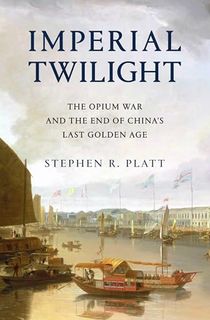
Imperial Twilight: The Opium War and the End of China's Last Golden Age
“A fast-paced story that focuses on the individuals who made the history” (Washington Post), celebrated historian Stephen R. Platt produces a revisionist narrative of the First Opium War, “the conflict that allowed Western merchants to pry open China’s riches” (Publishers Weekly), filled with eccentric characters who seem like they were plucked straight out of fiction—including opium smugglers, Christian missionaries, a pirate queen, and Jane Austen’s older brother. The result is a “thoroughly researched and delightful work” that is “essential for anyone interested in Chinese or British Imperial history” (Library Journal).
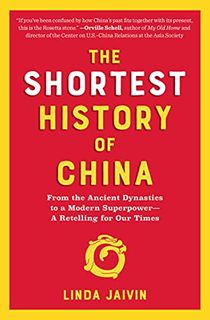
The Shortest History of China: From the Ancient Dynasties to a Modern Superpower―A Retelling for Our Times
Part of the “Shortest History” series, this “succinct yet dynamic narrative” takes on the difficult task of “chronicling China from prehistory to the present” all in just a few hundred pages (Choice). Designed as a quick introduction for modern readers who are curious to know more about the nation behind the headlines, The Shortest History of China has been hailed as “one of the best histories of China” by Richard Bernstein, author of China 1945.
This post is sponsored by Open Road Media. Thank you for supporting our partners, who make it possible for The Archive to continue publishing the history stories you love.



